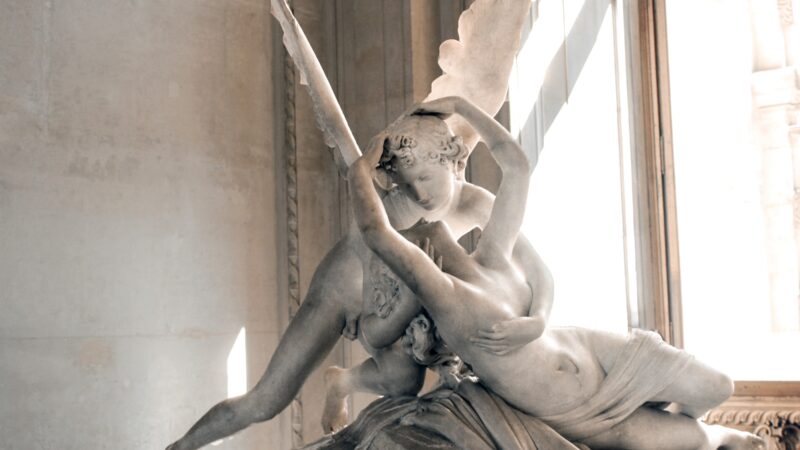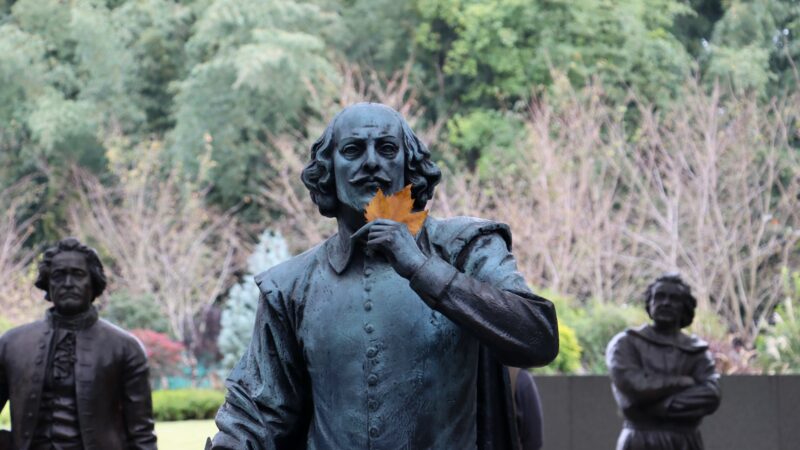Putin’s War: A Tale of Soviet Romanticism and Western Ignorance | Daniel Hawker
With Russian troops having begun a full-scale invasion of neighbouring Ukraine, President Joe Biden was recently asked by a journalist “Do you think you may have underestimated Putin?” In response to the question, the supposed ‘most powerful man in the world’ offered merely a smirk and proceeded to sit in silence whilst his team rushed to stop the video recording. This was inevitably due to the honest answer being yes – the warning signs have been evident for decades. Let us first consider the historical basis for the invasion.
Vladimir Putin’s position as a Soviet romantic has come to be a defining aspect of his political image. In his 2005 state of the nation address, he notably referred to the 1991 collapse of the USSR as “the greatest geopolitical catastrophe of the century”, an event which left “tens of millions of our fellow citizens and countrymen … beyond the fringes of Russian territory”. It is this Slavophilic perspective that is paramount in understanding the motives and aims of Russian foreign policy in Eastern Europe. With the fall of the USSR came, according to Russian nationalists, the mass displacement of Soviet citizens outside of the Motherland. Millions of Slavic people, all of whom shared a rich cultural history, now living within the borders of independent states, stripped of their collective identity. At this time, young Vladimir Putin was working for the Mayor of Leningrad, and this moment came to shape his ideology and vision for Russia’s future (and the future of former-Soviet satellite states).
Ukraine however, has always occupied a special place within Russian romantic nationalism. The Russian Federation actually has its origins in modern-day Ukraine – specifically the Kievan Rus’ federation (consisting of East Slavic, Baltic and Finnic peoples), which existed from the 9th to the 13th century. Linguistic and cultural roots remain strong, with most Ukrainians also speaking Russian, especially in the eastern and southern parts of the country. Whilst a region of the Russian Empire (and later the USSR), Ukraine was a crucial region for agriculture due to its soil, which is exceptionally well-suited to the farming of crops.
Given this intertwined history, a key tenant of Putin’s romantic mindset is the idea that Russians and Ukrainians are one people, and must therefore exist within the same state. This view was most recently revealed in a 2021 article written by the president, titled ‘On the Historical Unity of Russians and Ukrainians’, in which he affirmed that “true sovereignty of Ukraine is possible only in partnership with Russia”. Stella Ghervas, a professor of Russian history at Newcastle University, has explained that “the borders of the Russian Empire in 1914 remain a point of reference from the Kremlin up to this day”.
However, it seems that the West has chosen not only to ignore how ideologically desperate Putin is to reclaim Ukraine, but also how brutally willing he has been to utilise hard power to achieve his expansionist aims. 2008 saw artillery attacks by pro-Russian separatists (backed by Putin) in the South Ossetia region of Georgia; 2014 brought us the infamous annexation of the Crimean Peninsula, and 2021 saw a mass-movement of Russian troops and military equipment to the Ukrainian border, raising concerns over a potential invasion. These examples should have clearly demonstrated to Western powers the lack of respect Vladimir Putin has for national sovereignty, and that once his mind becomes fixated on regaining lost Soviet territory, he can’t be easily dissuaded. With this in mind, the invasion of Ukraine should be viewed as the inevitable and long-awaited finale to Putin’s expansionist concerto.
The response to the latest developments is hardly surprising: economic sanctions appear to be a firm favourite amongst Western leaders; Boris Johnson has sanctioned five Kremlin-friendly oligarchs and aims to target “all the major manufacturers that support Putin’s war machine”, whilst Joe Biden has levied penalties against major Russian industries and frozen the bank assets of the regime’s major figures. An international effort has also been undertaken, with the UK, US, EU and Canada agreeing to cut off a number of Russian banks from SWIFT, the international payment system. However, such sanctions, especially those against individuals, have received pushback. Following Crimea in 2014, the late and greatly-missed philosopher Sir Roger Scruton published a piece in which laid out how believing that sanctions against oligarchs “will make the faintest difference to Russia’s expansionist foreign policy is an illusion of staggering naivety” – having faced the threat of increased sanctions since then, Russia has built up foreign currency reserves of $630bn (akin to ⅓ of their economy).
In terms of military responses, the general consensus is that Western troops won’t be deployed, and there is a simple logic to it – Western populations have no real hankering for a war: two recent YouGov polls revealed 55% of Britons and 55% of Americans oppose sending their own troops to fight in Ukraine (for the United States, last year’s disastrous withdrawal from Afghanistan undoubtedly turned the public off of war for a while). However, NATO troops have been deployed to Eastern Europe, and we’ve also sent 1,000 soldiers to Hungary, Slovakia, Romania and Poland, in preparation for the inevitable outpouring of innocent and scared Ukrainian families.
Whilst the objectives of the Putin regime and the long-term naivety of the Western order are the two primary factors, the West’s role in bringing this situation about must also be acknowledged, for the sake of honest discussion. In the early 1990s, Boris Yeltsin expressed his desire for Russia to one day join NATO; Putin echoed this in 2000 when Bill Clinton visited Moscow. Despite Russia at these times being a fledgling democracy, they were turned down by the alliance – provided the opportunity to start anew and help the Russian people, the West refused to bring Russia into the international fold.
Further evidence of the West’s culpability is the expansion of NATO’s borders. Although an arrangement with murky origins, the generally-understood version is that the US Secretary of State James Baker, told Mikhail Gorbachev that NATO expansion was ‘not on the agenda’. Regardless, the welcoming of former Eastern Bloc states into the alliance (Romania, Bulgaria, Latvia, Lithuania, Estonia, Slovakia and Slovenia in 2004, and Albania and Croatia in 2009) has only served to worsen relations between Putin and the West – despite the availability of open dialogue for decades, we’ve consistently chosen mistrust when dealing with Russia.
Whilst the West may be shocked that Putin actually went ahead with a military invasion, it can’t seriously claim to have been surprised; the president’s intentions regarding Eastern Europe and Ukraine especially have been nefariously evident for at least a decade, in which time we’ve fooled ourselves, downplaying the risk Russia posed. We must endeavour to remember however, the most tragic consequences of this entire situation: the many thousands of innocent Ukrainian civilians who’ve lost their lives, their homes and their feeling of safety within their own borders. For Russia, sanctions will hurt their citizens, all whilst their understanding of the situation is distorted through propagandistic state media. This really is a horrific situation, and one that has occurred because of Putin’s worldview and Western leaders’ inability to take Russia seriously as a threat.










The Marvelisation of Ukraine
The discussion has never been stupider.
The relative infrequency in which western audiences are exposed to war means that every time a conflict breaks out, enormous advances occur not just in technology or strategy, but in culture too. Whilst the First World War showed the power of industrialisation, the Second showed the potential of modern media to be harnessed as propaganda and the Gulf War demonstrated the importance of emergent 24hr news coverage.
Those who have followed the war in Ukraine through Twitter may have noticed a similar cultural shift. Russia, whose information warfare capabilities have been for so long held up as an aspirational standard for other nations, appears to be losing the battle online. Even well-paid RT journalists who were quite happy to continue shilling through the poisonings in London and Salisbury, the Russian downing of an airliner and the annexation of both Donbass and Crimea are now resigning – shocked to find unfriendly propaganda being produced by their own organisation.
The news is not that the Russians have, in PR terms, been internationally out-maneuvered. They are the aggressor (and a much more powerful one at that), they’re non-Western and non-democratic. The government does not respect liberal values – or human life. There was never much support or sympathy for Putin or his regime overseas and many are taking the side of Zelensky. Rather, the noticeable shift has been in the way that Ukraine has been discussed online and in how support for Ukraine is being expressed. What we are witnessing is not so much the lionisation of Ukraine as the Marvelisation.
In order to make sense of complex foreign events, people have always had to distort and simplify in order to find a frame of reference they understand. It’s why so many of our baby-boomer politicians end up talking about Munich and appeasement. The horrors of Nazism are the defining moral event of our modern age, to which our revulsion is universal. With such a point established, it is easy for people to rely on it to establish the defined evil of the opposition position, mawkishly conjuring images of them taking the noble and justly defiant stand of David Low: ‘Very well, alone.’
The frame of reference for Boomers is the Second World War. But for the terminally online generation, it is Marvel films. Post-invasion, Marvel’s The Winter Soldier began to trend as the conflict was compared to the film. The number of people replying ‘Yo, Thanos fr?’ to this obvious meme tweet is deeply troubling – the fact it had to be taken to a fact checker even more so. People are campaigning for Jeremy Renner to be cast as Volodymyr Zelensky. There is a dangerously high number of tweets achieving near apocalyptic-levels of cringe by depicting the Ukrainian leader as ‘Captain Ukraine.’ But why would anyone compare a real-life conflict with a superhero film? The people committing these atrocities against intellect are desperately seeking a cultural reference to fit into a narrative of good vs evil, and sadly the narratives with which they are most familiar are Marvel ones.
The use of both Marvel and the Second World War as rhetorical devices have much in common. For groups with relatively little understanding of international relations, of diplomacy or history, both offer a reference point that is almost universally understood. Marvel’s films achieve titanic viewing figures, and we must not forget that boomers grew up in a world where the Second World War was still a common subject for films and programmes. That means, at least, that there is a common understanding, and ensures that everyone is roughly on the same page.
The clear-cut ‘good guy vs bad guy’ narrative of Marvel films, much like the universal revulsion to the crimes of the Nazis, also provides an easily defined good vs. evil narrative, of just war, deo et victricibus armis. Once you identify yourself and your chosen side with Winston Churchill – or Ironman – you have taken position on the moral high ground. It is a way to dismiss the position of your opponents and establish your own as self-evident without worrying too much about the niceties of debate. There is no room for subtle nuance, for allowing that perhaps there has been a categoric failure of western foreign policy in the build up to Ukraine, or that appeasement was a sensible, logical policy borne from Chamberlain’s calculation that the longer war could be delayed, the better Britain’s chances, as James Levy argued. Relying on the black-and-white nature of Marvel or the Second World War means a debate has no room for nuance – indeed, this is rather the point. There is no room for Kissinger’s constructive ambiguity – the extent of the understanding is limited to them BAD, we GOOD.
The use of Munich as a parallel for everything in international relations should be derided. There are some cases in which it is a genuinely useful historic parallel; but in the main, it is a poor example that betrays a lack of understanding. Prior to the invasion, for instance, Tobias Ellwood MP called for a ‘Churchillian approach’ to the crisis. What Ellwood meant was that his course of action would have been Churchill’s – brave, daring, bold. Any other potential action was Chamberlain’s – servile, cowardly, fit only for the effeminate nursings of the seraglio. Given that Churchill was perfectly prepared to assign Eastern Europe as a sphere of Russian influence in the Percentages Agreement, Ellwood’s call was deeply historically inaccurate, but it did at least serve to remind us that he has both the heart of a lion and the brain of a sheep.
The use of Marvel as a parallel for anything in international relations should also be derided. Every mention of a character from a superhero film in discourse this important should be greeted the way my girlfriend greets me when I get home from work – with thinly veiled contempt. They are a way to infantilise a complex situation. Watching films, as with all visual media, requires perception rather than conception. Marvel films don’t require understanding, insight or intelligence – the good will eventually win out, as it always does. Gasp as the superhero defeats the bad guy just in time to save the world for the 4,927th time running.
Marvelisation is deeply crass, as crude and unrefined as the oil western nations are still dependent on Putin for. But it is not solely driven by a lack of empathy. The main driving factor is more simple. It is content platforms doing what they do best; producing content. There is a gaping chasm in the timeline, and it must be filled with content. Ukraine is more than a war; it’s a chance to go viral, to close a real, discernible gap in the race for retweets.
A war set to displace and kill thousands seems an odd place to seek new content from. But it is not a new phenomenon. In The Gulf War Did Not Take Place, Jean Baudrillard posited that the slick media presentations, such as Norman Schwarzkopf’s ‘Mother of All Press Conferences’ and constant media coverage from the new 24-hour news channels made it essentially impossible to identify what actually happened. Since the Gulf War, the internet has only accelerated this process of conflict becoming content. War has become a hyperreal simulacrum, indistinguishable from other forms of visual media. War is to be consumed. As Zelensky films himself walking around Kiev, the Twitter hive-mind of Marvel audiences immediately turns to Jeremy Renner because they are almost totally unable to distinguish the real world of war, of which they have no experience, from that of Marvel, which they are deeply familiar. For them, watching Ukraine unfold is no different to watching a new show. For Ukrainians, it is a grim daily reality.
Photo Credit.